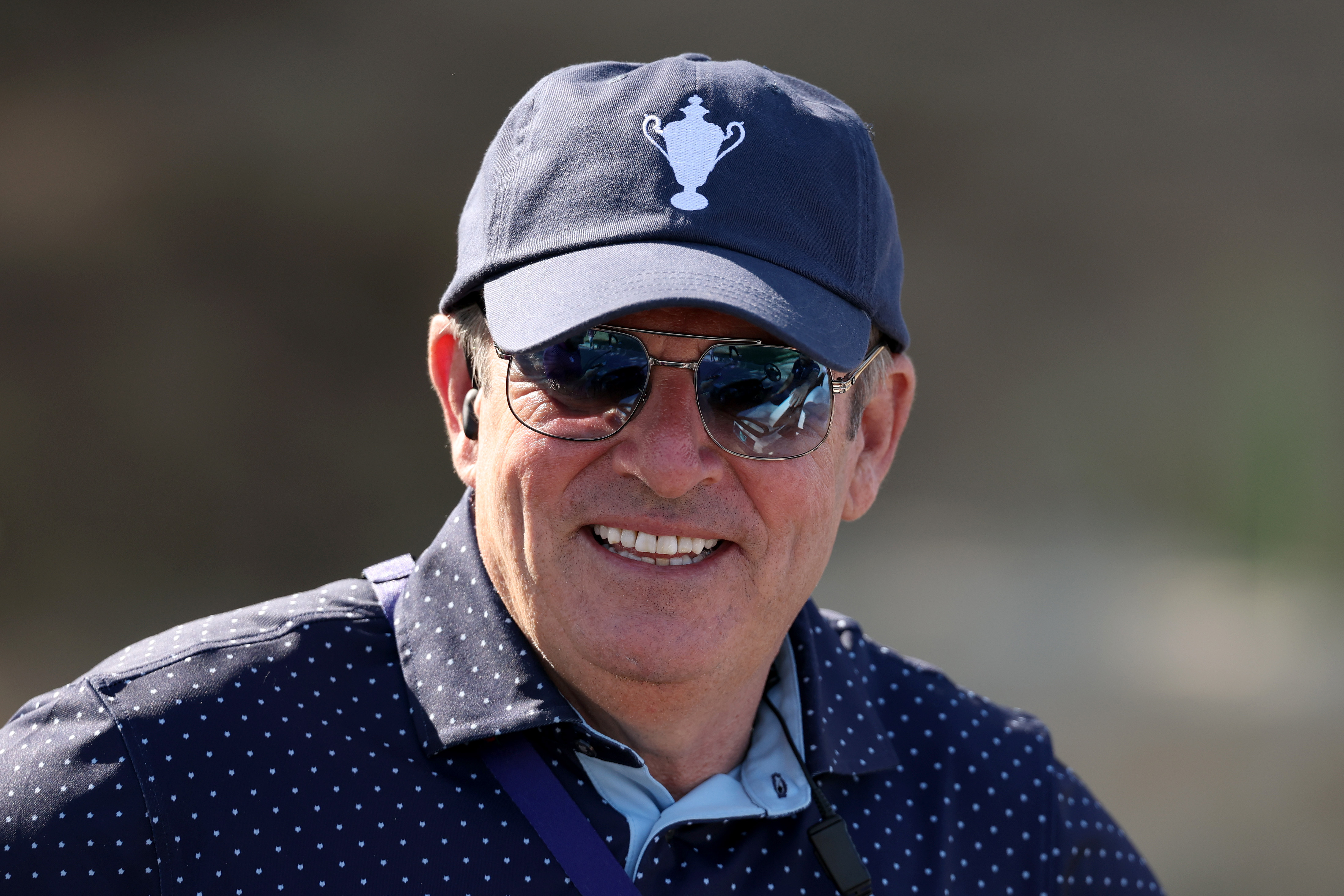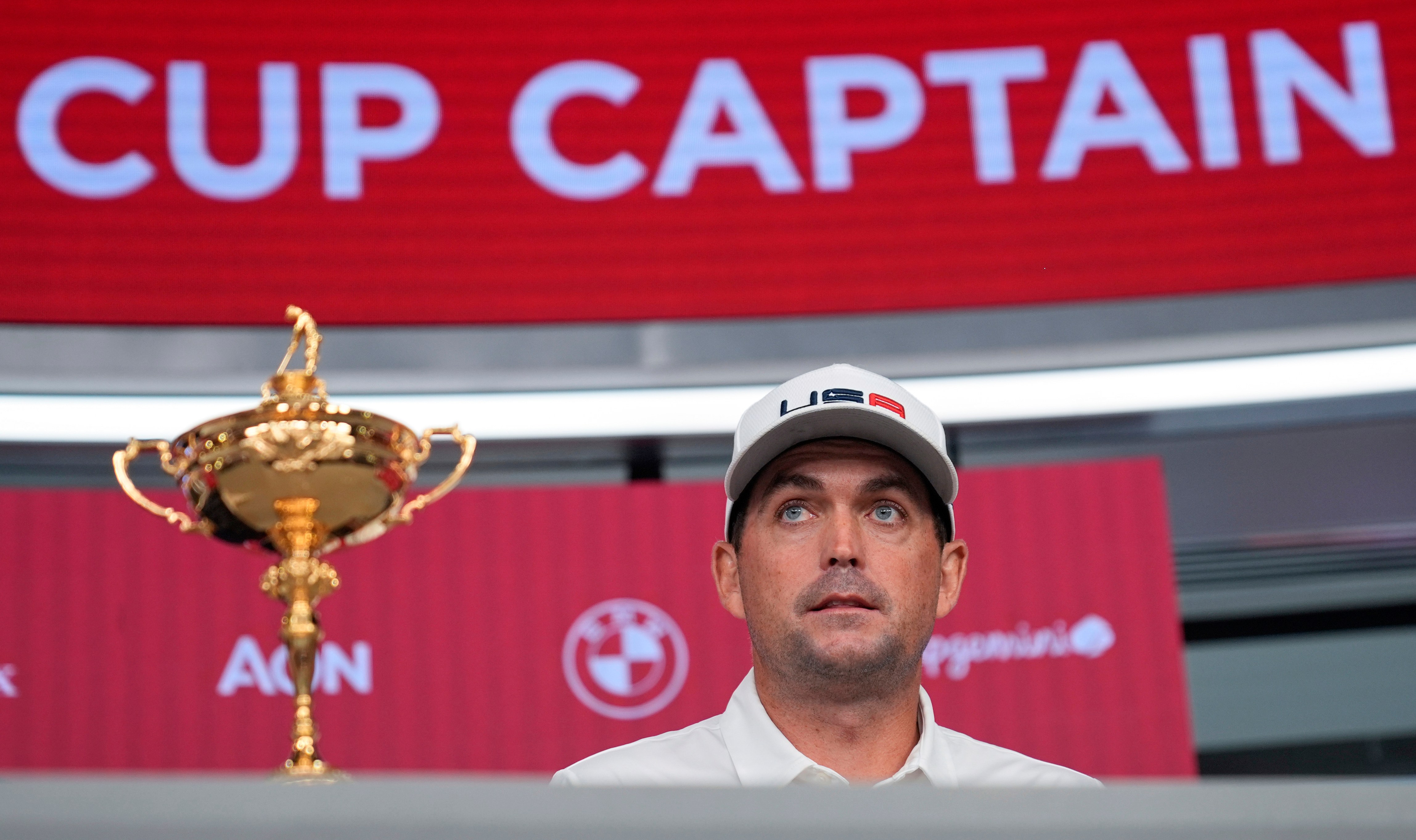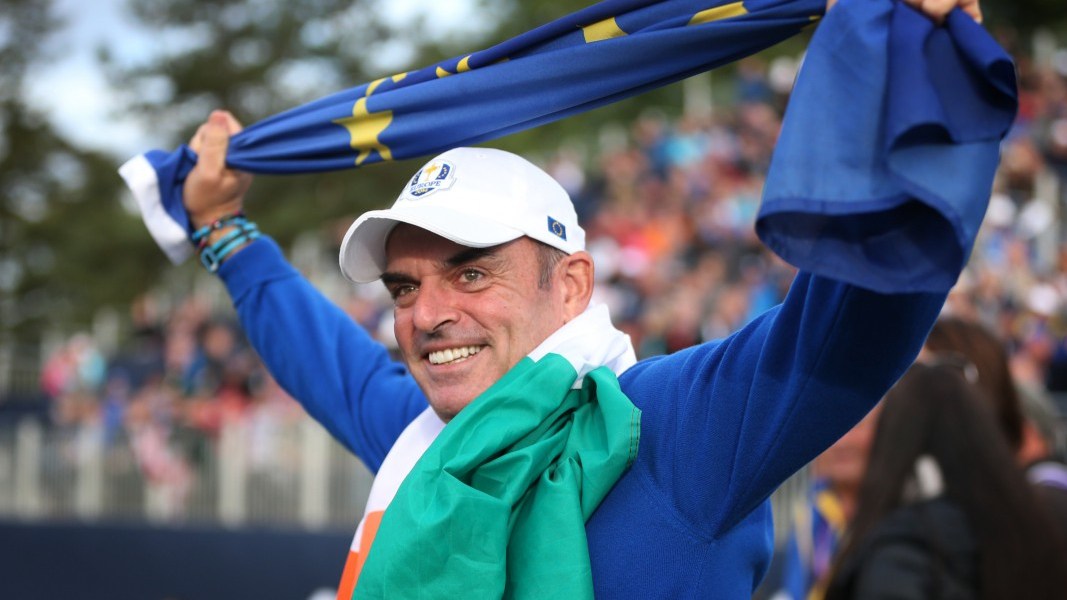The US Ryder Cup team have made a “massive mistake” by breaking with tradition to pay players at next week’s event, according to the former Europe captain Paul McGinley.
Now the strategic adviser to the Europe team, McGinley thinks the decision to award each American player $500,000 (about £367,620) could backfire at Bethpage Black, where fans are having to cough up $750 for a day ticket. Europe’s players, who played the New York course on Monday as part of a two-day reconnaissance trip, will not receive any money and McGinley struggles to understand the US thinking.
“For the kind of money these guys are making nowadays, to get half a million each is tiny money,” he told The Times. “It’s huge in everybody’s life, but not theirs. Seve Ballesteros, Nick Faldo, Ian Woosnam never got paid. Curtis Strange, Lanny Wadkins and Jack Nicklaus didn’t. These modern players have pushed the envelope to get half a million dollars. It’s the mentality of rattling the money tree everywhere they can at the moment.”

McGinley says Europe’s players, having refused Ryder Cup payments, will retain a strong bond with fans
RICHARD HEATHCOTE/GETTY
The issue of payments has rumbled on for decades but erupted into controversy at the previous Ryder Cup in Rome, where Patrick Cantlay denied that he was making a protest about the lack of appearance money by refusing to wear a Team USA cap. European fans responded by waving their caps at him, and American players, in turn, mocked that by doing likewise after Cantlay sealed a win in the four-balls.
“I don’t want to speak too much about the Americans but will give you an insight into what we’re doing,” McGinley, 58, said. “We knew this was bubbling underneath the surface in Rome and the Americans said [money] was nothing to do with it. Of course it was and every dog in the street knows it was. Not long afterwards they announced their payments.
“We knew the announcement was coming, and about a week beforehand Luke [Donald, the Europe captain] communicated with all the 12 players from Rome and they came back within a few hours to say, ‘100 per cent, we don’t want to get paid’. That puts us on the right side of it and it bonds us with the European fans. Personally, I think they have made a massive mistake to push for this considering how much money is in the game.”
McGinley, who was part of a rare Europe win on US soil in 2004 as well as captaining the victors at Gleneagles in 2014, was also quick to stress the financial benefits that already exist from playing in the transatlantic clash.
“Remember, lots of players who make the Ryder Cup on both sides will have bonuses written into their contracts so, indirectly, they are already getting paid from sponsors. Secondly, your brand as a player grows quantifiably by playing in a Ryder Cup, so there are lots of indirect benefits in terms of profile.”

Keegan Bradley, the US captain, has pledged to donate all of his Ryder Cup money to charity
ETH WENIG/AP
The PGA of America, which co-stages the biennial clash, also pays 20 per cent of TV revenue to the PGA Tour, with a large amount being put towards players’ retirement plans. NBC is believed to be paying $440million over 15 years for the US rights.
US players have previously received $200,000 to be distributed between their charitable choices and junior golf programmes. This time they are getting $500,000, which the PGA of America insists comprises $300,000 for their favoured charities and a $200,000 stipend. When the plan was confirmed last year, Rory McIlroy said he would pay to play in the Ryder Cup, while Tiger Woods said it was “never about getting paid” but rather about having a share of the profits to give to charity.
Last week at the BMW PGA Championship, Patrick Reed, the 2018 Masters champion who missed out on the US team, said payments were “unnecessary”.
Hull overcomes litany of injuries to snatch title in Ohio
Hull shows off the trophy after her win
GETTY
Charley Hull described herself as “a car crash” after her LPGA Tour win at the Kroger Queen City Championship. If Hull needed Jeeno Thitikul, the world No1, to take four putts from 50 feet on the last hole in Ohio, nobody could question her right to a win after the resilience she has shown this year.
Hull, whose one-stroke victory came with a $300,000 purse, said: “I’m a bit injured at the moment. I tore the ligament in my foot in half in a car park the week after the British Open at a golf event. I got told it could be up to nine weeks out [but] I turned it round in three.
“I had an MRI on my back as well, because I picked up a box a couple of months before the Evian Championship [in July], and I think I tore something in my back because it never got better. When I fell down when I done my ankle, I got the MRI and I’ve got some cysts growing from where I tore the muscle.
“I’ve been slapped with every injury at the minute, so I have just been managing my way through it this week. I’m a little bit sore.”
Hull also fainted twice at the Evian Championship and had to withdraw from the French major. “It’s been a rocky couple of months and I sound a bit like a car crash,” she said. “I suppose pain is just a weakness of the mind. I just felt like I needed a little bit of luck in the last few years because I don’t feel like it’s ever gone my way. Finally it has. Every dog has its day.”

